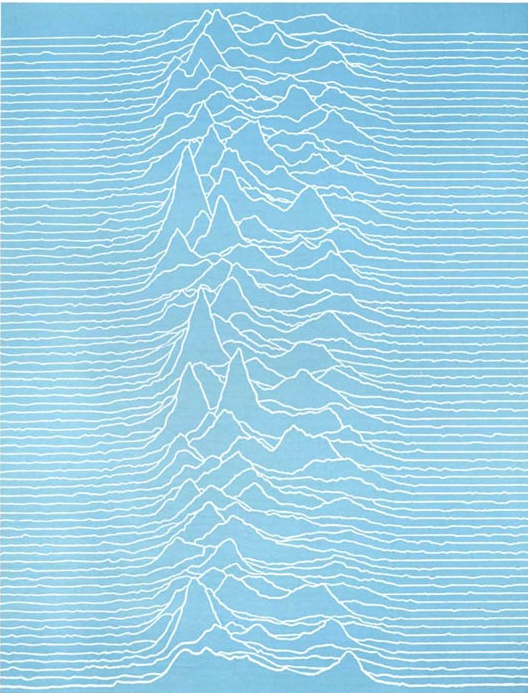Am a civil engineer working in tech now. I never felt like engineering was magical, we studied materials and stresses and tested stuff and built things.
While I know software engineers basically do the same things in a digital concept (hardware included) they are basically speaking arcane words that make the machine do things like conjure up images, transport information across the world at the speed of light.
Maybe fantasy writers should write more infrastructure into their stories for their wizards, like undersea cables or satellites built by the generations before
It’s all wizardry. A long time ago some dudes tricked a bunch of rocks into doing math. So long as you don’t let out the magic smoke, you can keep doing math.
The trick is getting the lightning into the rocks first…
RF engineering is witchcraft.
Oh, it’s worse than that, it’s not garden variety “make jimmy fall in love with me” magic; it’s “call forth the daemon spirit of Fourier to transform the spectral flux into symbols for the sacred converter to interpret via the MCS scrolls into a cursed message posting to kbin…”
Most GHz RF designs are a PCB with a bunch of copper sigils and a single transistor.
Software engineering is alchemy, except you’re often trying to create gold from lead for corporate interests. That being said, I enjoy the craft so much that despite being a corporate technomancer, I have still been able to pursue my own chemical marriage.
This is nicely said, saving this :)
software engineers
You mean Tech Priests?
In some fantasy, I guess lay lines, dolmens, stone circles and the like are kinda infrastructure for magic? Totally agree about the programming = magic, and in a “fantasy” world I worked on for a game the twist was that all the ‘magic’ was just programming and hacking the old advanced tech computer / satellite network.
The “mages” had some augmented reality type implant that allowed them to call up minority report style screens they could interact with, and give verbal commands. But to everyone else they’re just waving their hands through the air in strange patterns and saying gibberish words “sayday spayis slash eih tay say slash”.
The wizards had no real idea what they were doing, and researching new “spells” was basically the same as a noob trying get some feature working on a remote Linux server with only two partial and contradictory walk-throughs for an earlier version of the distro. So even if they got stuff working, they rarely understood how or why it worked.
I think it’s really interesting to think about how even though computing is generally objective / logical, if you stripped away all background knowledge and added in a bunch of uncertainty (it’s hard to communicate with the server and sometimes your commands get scrambled, so even the same command might not always work) then you’d end up in a situation quite like ancient / medieval science where people hyothosise about principles and make systems that are helpful, but don’t actually align to what’s really happening.
Electrical / materials engineering still felt a lot like magic.
Then there’s this book: https://www.goodreads.com/book/show/766056.High_Speed_Digital_Design
To demystify the tech a little, the recommend the book Elements of Computing Systems.
BTW, I am also a Civil Engineer working in Tech. Computers can be pretty interesting at the lower levels, in my experience.
Yes like high end computing is cool and all, but forcing an extremely low end chip to do something technical is always incredible.
This is essentially the backstory of the Adeptus Mechanicus. Warhammer 40k has proceeded so far into the future and so much knowledge has been lost that mechanical gadgets like dams require priests anointing them with oil and burning incense to use them.
Dying Earth is loosely similar. There’s both tech and magic.
The Saga of Recluce builds the tech and integrates it with magic.
The Book of the New Sun takes the same tack as W40k (albeit written earlier) with far future shit relying on old tech without knowledge.
The Broken Earth trilogy has a mix of far future and magic. It’s my one of my favorites.
I know that software developers want to be called engineers. But honestly it is a horrible analogue
Software is honestly almost more of a scientific discipline. Sure it’s applied (things are built to a specific function), but the actual work proceeds much more like a rolling series of compounding experiments.
Computer scientist is a great piece of language that I think software developers should wear with pride.
Also, without a PE role who has legal responsibility for the design, you just can’t call it engineering in my mind. I make my living validating software that other people make. It’s gotten better but 20yrs ago we were expected to release test drugs on instruments running toy grade software. If an engineer designed a bridge with flaws equivalent to lab software that can’t do a linear regression properly they would end up in jail.
Computer science is a branch of math. And while it has applications in software, most developers do not interact with it, only using existing implementations of CS results.
The guys that kinda started the field in the 60s and 70s preferred the term Wizard
deleted by creator







